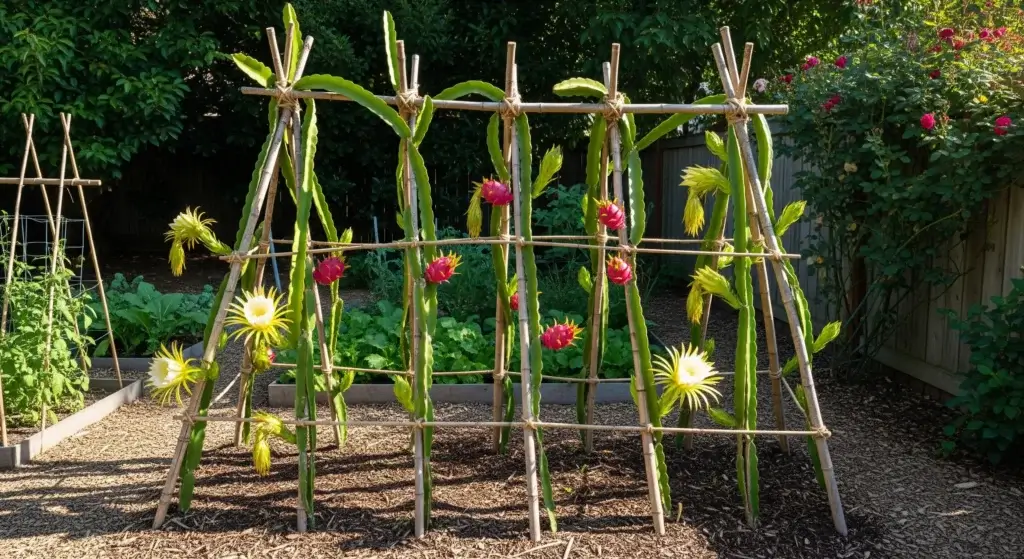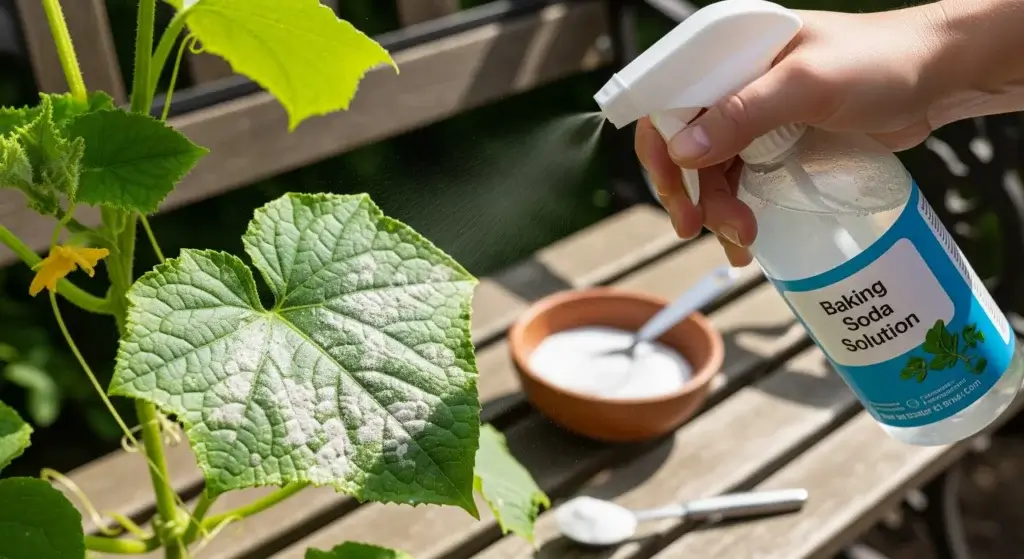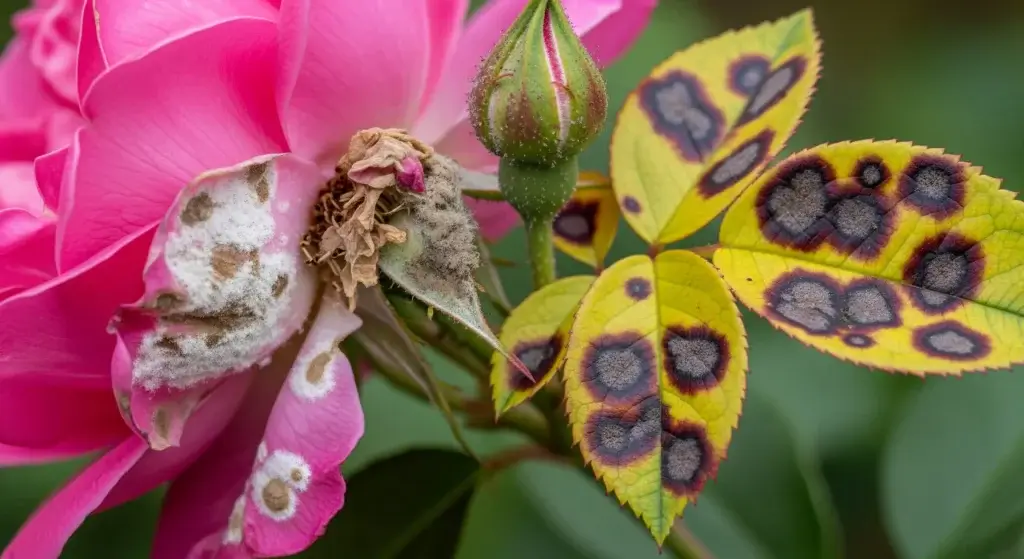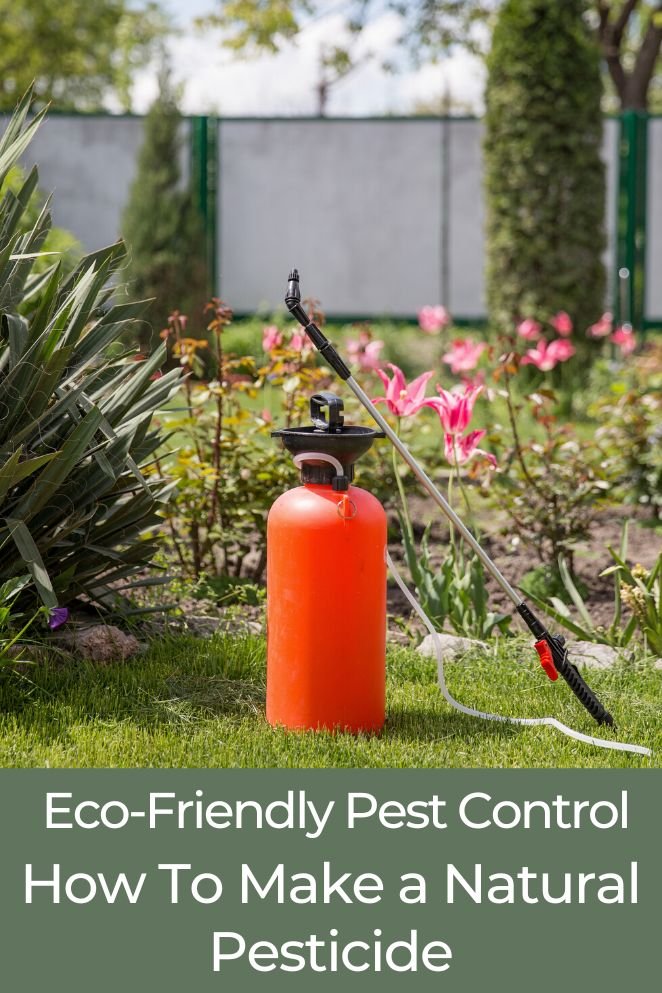
For a long time, chemical pesticides were the quick fix for pest troubles.
However, their harmful impact on both the environment and health is unmistakable.
This is where natural alternatives come into play, offering a kinder, more effective approach to pest control that’s eco-friendly.
The Importance of Natural Alternatives
Chemical pesticides wield a double-edged sword: while they target pests, their repercussions extend far beyond. Here’s why the shift to natural alternatives is pivotal:
Holistic impact
Chemical pesticides aren’t discriminatory; they harm not only pests but also beneficial insects, animals, and the delicate balance of ecosystems.
By contrast, natural pesticides target specific pests, minimizing collateral damage to the environment.
- Read also: Natural Pesticides for Fruit Trees
- Read also: Natural Pesticides for Vegetable Garden
Preserving biodiversity
The indiscriminate nature of chemical pesticides jeopardizes biodiversity.
It disrupts the intricate web of life, impacting everything from pollinators like bees to larger wildlife.
Embracing natural alternatives preserves this delicate balance, safeguarding diverse ecosystems.
Human health concerns
Chemical residues from pesticides can find their way into our food chain and water sources, posing health risks to humans.
Choosing natural options mitigates these health concerns, reducing our exposure to potentially harmful substances.
Sustainable solutions
Natural pesticides offer sustainable pest control solutions.
They break the cycle of dependency on synthetic chemicals, promoting a healthier environment in the long run.
Cost-effectiveness
Affordable and accessible ingredients form the backbone of natural pesticides.
From common household items like vinegar, garlic, and essential oils, these remedies are not only effective but also budget-friendly.
They eliminate the need for expensive specialized products while providing efficient pest control.
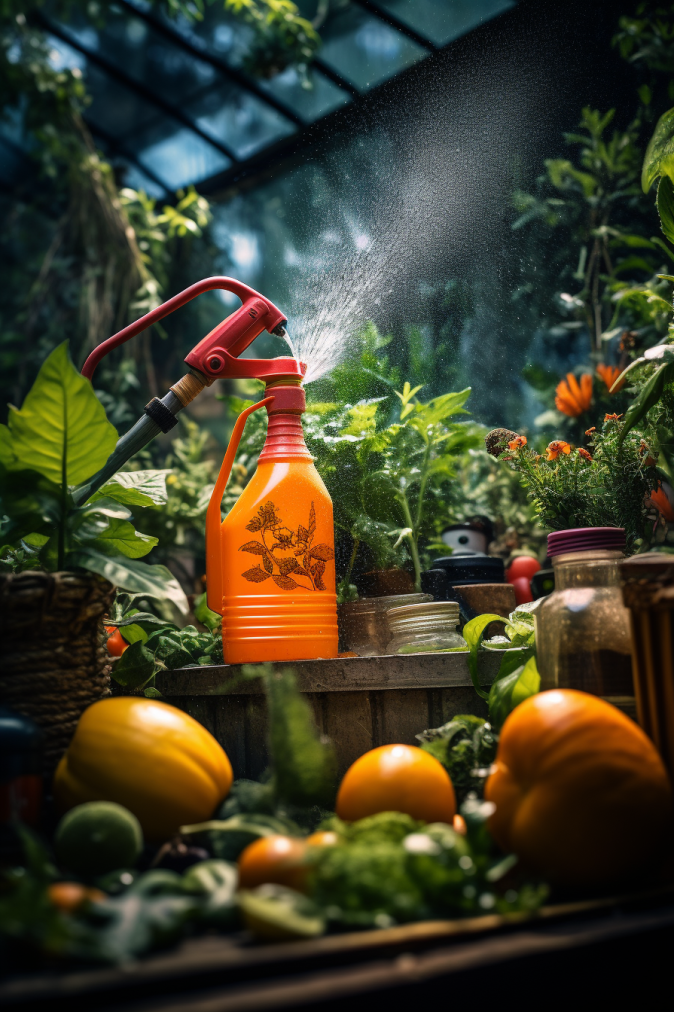
Natural Substances for Homemade Pesticides
Essential oils
Peppermint, neem, tea tree—these essential oils are powerhouse pest deterrents.
Their strong aromas disrupt pests’ senses, acting as a barrier that keeps them away from your space.
Additionally, certain essential oils possess properties that directly affect pests’ physiology, disrupting their life cycles and preventing infestations.
Garlic
Beyond its culinary uses, garlic is a natural pest repellent.
Its pungent scent confuses and repels pests like aphids and mosquitoes.
When used in a spray or solution, garlic acts as a natural barrier, deterring pests from invading your plants or home.
Vinegar
This kitchen staple is a versatile weapon against pests.
Its acidic nature makes it effective against ants, spiders, and other insects.
When used in a solution, vinegar disrupts pests’ scent trails and masks the pheromones they use for communication, effectively deterring them.
Soap
Simple yet effective, soap disrupts pests’ cell membranes, suffocating them on contact.
When combined with other natural ingredients in a solution, soap acts as an adhesive, making it easier for the solution to stick to pests and increase its effectiveness.
Cayenne pepper
Cayenne pepper takes on a new role as an eco-friendly pest deterrent.
Its intense spiciness serves as a natural barrier, warding off pests such as squirrels and certain insects that might otherwise feast on your cherished plants.
Embrace this organic solution to protect your garden without resorting to harmful chemicals, promoting both plant health and a thriving ecosystem.
Coffee grounds
Coffee grounds, owing to their caffeine content, can act as a natural deterrent against pests like slugs and ants.
They work by repelling these pests due to caffeine’s effects on their nervous systems.
When spread around plants or areas where pests gather, coffee grounds create a barrier that deters pests and contributes to soil health as they decompose.
Tomato leaves
Tomato leaf insecticide offers a natural defense against pests by utilizing alkaloids.
This eco-friendly alternative effectively safeguards plants without resorting to harmful chemicals.
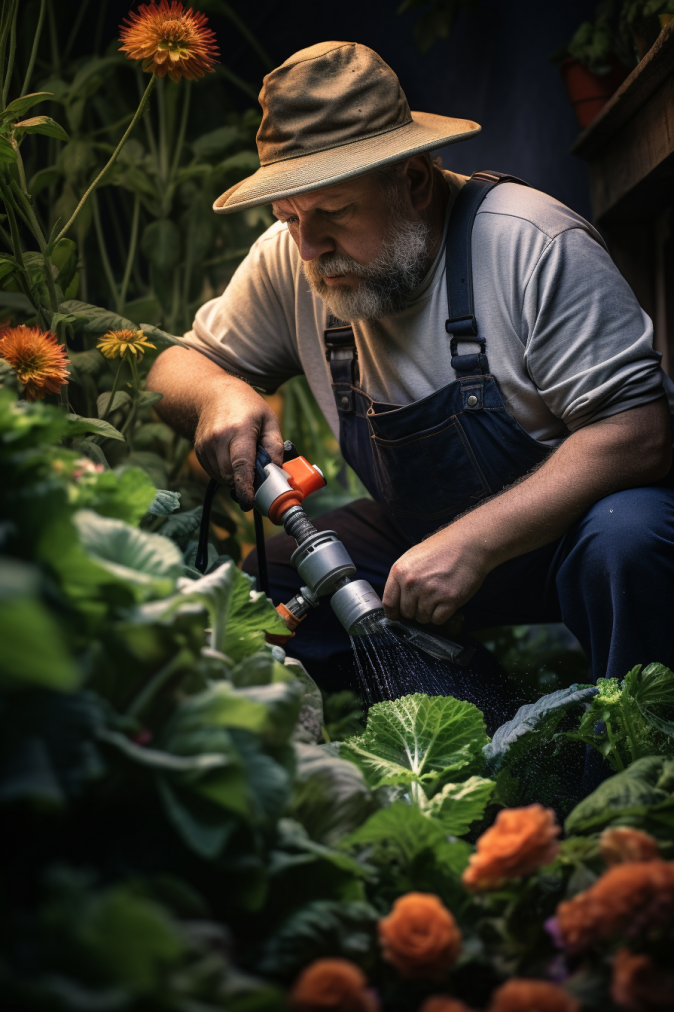
Step-by-Step Instructions for Natural Pesticides
Let’s dive into the exciting part—creating your homemade natural pesticides. It’s simpler than you think.
Ant repellent spray
Discover an easy and potent ant-repelling solution using vinegar. This natural deterrent effectively keeps these persistent insects away.
Follow this concise guide to create and apply the repellent. Gather the following ingredients:
- vinegar,
- water,
- and a spray bottle.
Instructions:
- Mix equal parts of vinegar and water in a spray bottle. Opt for white vinegar, as its acidic nature disrupts ants’ communication and trails effectively.
- Ensure the spray bottle is securely capped, and shake the solution thoroughly to blend the vinegar and water evenly.
Vinegar’s acidic properties interfere with ants’ pheromone trails, disrupting their ability to communicate and navigate.
This confusion prevents them from establishing trails and discourages them from entering treated areas.
Aphid deterrent solution
Developing a solution based on garlic is a straightforward and efficient way to discourage aphids from damaging your plants.
Follow this comprehensive guide to craft and utilize this natural deterrent.
Ingredients:
- cloves of garlic,
- water,
- a strainer,
- and a spray bottle.
Instructions:
- Start by peeling and crushing several cloves of garlic. The potent odor in garlic holds compounds that efficiently deter aphids.
- Place the crushed garlic in a container and add water, covering the cloves completely. Allow it to steep for a few hours or overnight, maximizing the infusion of garlic’s properties into the water.
- After steeping, strain the garlic-infused water using a strainer to remove solid particles, transferring the solution into a clean spray bottle.
Garlic’s pungent scent acts as a natural aphid repellent, deterring them from infesting plants.
The compounds in garlic disrupt aphids’ sensory receptors, discouraging them from settling on treated foliage.
Peppermint oil spray
Crafting a peppermint oil spray stands as a straightforward yet potent method to repel pests.
Here’s a clear guide on creating and applying this fragrant solution using peppermint essential oil, water, and a spray bottle.
Instructions:
- To begin, opt for high-quality peppermint essential oil, ensuring it’s pure and undiluted to achieve the best results.
- Get a clean spray bottle and fill it mostly with water, leaving room to add peppermint oil. For a standard-sized bottle, start by putting in about 10-15 drops of peppermint oil.
- Once the water’s in, add the peppermint oil to the spray bottle. Close the lid tightly, then shake vigorously to ensure thorough mixing.
Peppermint oil’s strong and refreshing scent acts as a natural repellent against spiders, ants, and various other insects.
Its fragrance disrupts their sensory receptors, deterring them from entering treated areas.
Besides repelling pests, peppermint oil leaves a pleasant scent in your home, acting as a natural air freshener.
Neem oil emulsion
Crafting a neem oil emulsion serves as a potent and natural method to tackle diverse garden pests.
Below, find a comprehensive guide detailing the creation and application of this impactful solution, utilizing neem oil, water, and mild liquid soap.
Instructions:
- Start by choosing high-quality neem oil. Ensure it’s cold-pressed and preferably organic for the best results.
- Combine neem oil and water in a container following the suggested ratio. Generally, aim for 1-2 tablespoons of neem oil per gallon of water. To ensure better adherence to plants and pests, include a small quantity of mild liquid soap, around half a teaspoon per gallon of water.
- Thoroughly mix the ingredients by stirring or shaking the container. The emulsion should have a consistent appearance without oil separating from the water.
Neem oil contains compounds that disrupt pests’ hormonal systems, hampering their growth and reproduction.
This interrupts the life cycle of pests like aphids, mites, and caterpillars, reducing their populations without harming beneficial insects.
Besides its pest-controlling properties, neem oil also acts as a fungicide, preventing fungal diseases in plants.
Hot pepper spray
Crafting a homemade hot pepper spray for pest control is both effortless and efficient.
This uncomplicated recipe calls for everyday household items: 2-3 hot peppers, 2 cups of water, and 1-2 teaspoons of mild liquid dish soap.
Instructions:
- Begin by wearing gloves to protect your skin from the hot peppers’ oils. Avoid touching your face or eyes while handling them.
- Finely chop or dice the hot peppers, seeds included, and place them in a pot with 2 cups of water.
- Bring the water to a boil, then reduce the heat and let it simmer for about 10-15 minutes. This simmering helps draw out the active compounds from the peppers into the water.
- Once the mixture cools down, strain it to remove the pepper solids. Pour the liquid into a spray bottle.
- Add 1-2 teaspoons of mild liquid dish soap to the pepper-infused water in the spray bottle. The soap helps the spray adhere to plants and pests.
Hot pepper spray works by repelling pests due to the presence of capsaicin, the compound responsible for the peppers’ heat.
It’s effective against many garden pests, including insects and some animals, without causing harm to your plants or the environment.
Slug repellent
Slugs are repelled by the presence of caffeine in coffee grounds, deterring them from crossing areas treated with the grounds. Additionally, the gritty texture of the grounds can make it uncomfortable for slugs to crawl over, further discouraging their presence around your plants.
Here’s a simple recipe using common household items. Ingredients: used coffee grounds.
Instructions:
- Collect used coffee grounds from your morning brew or local coffee shops. Allow the grounds to cool and dry out completely before using them in your garden.
- Identify areas in your garden where slugs tend to congregate or where your plants are most vulnerable to slug damage.
- Sprinkle a layer of coffee grounds around the base of susceptible plants or along the edges of garden beds. Ensure a generous but even spread to create a barrier.
Besides their pest-repelling properties, coffee grounds act as a natural soil amendment, enriching the soil with organic matter as it decomposes. This enhances soil health and fertility, benefiting your plants.
Tomato leaves insecticide
Crafting your homemade tomato leaf insecticide offers a natural and potent solution to tackle garden pests without resorting to harsh chemicals.
The ingredients required include healthy tomato leaves, water, and a spray bottle.
Instructions:
- Collect mature tomato leaves. Ensure they are healthy, and free from diseases or spots. Wash the leaves thoroughly with water to remove any dirt or dust particles.
- Cut the tomato leaves into smaller pieces for better extraction.
- Place the leaves in a container and cover them with water.
- Let the leaves soak for at least 24 hours. This soaking process allows the release of alkaloids, which act as a natural insect repellent.
- After 24 hours, strain the solution to separate the liquid from the leaf residues.
- Use a fine mesh strainer or cheesecloth to filter out the solid parts, keeping only the liquid.
- Transfer the strained liquid into a clean spray bottle.
- Apply the solution directly onto affected plants, especially where insects are present or anticipated.
- Reapply after rainfall or as needed, ensuring the solution covers the leaves thoroughly.
- Store any leftover solution in a labeled container in a cool, dark place.
- Use within a week for maximum potency.
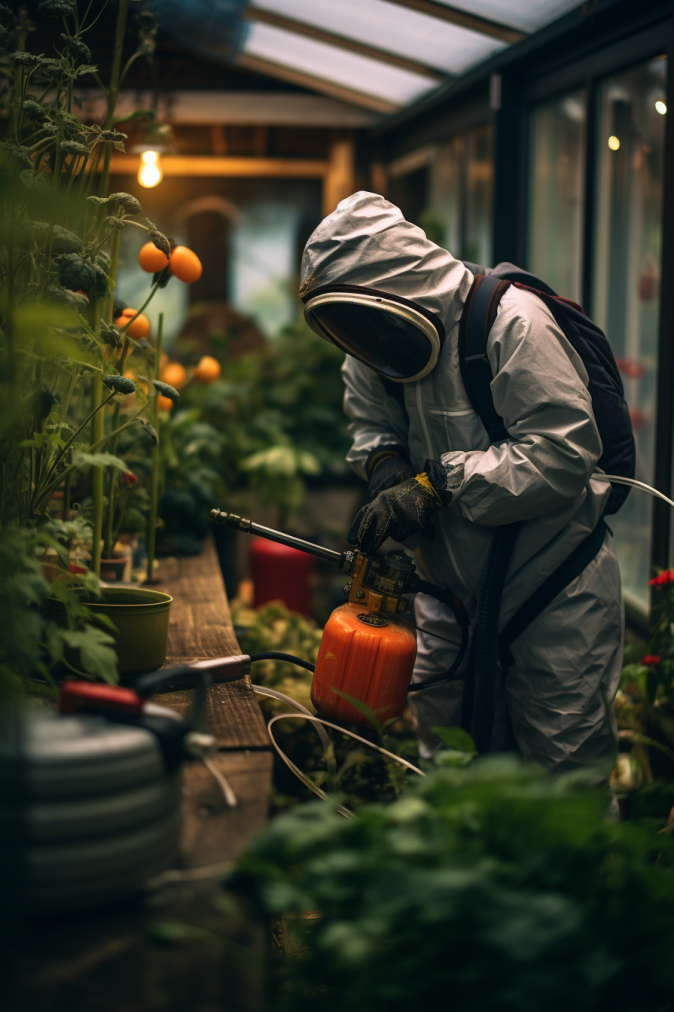
Tips and Tricks for Application
Proper dilution
Ensure accurate dilution of pesticide solutions as per recommended concentrations.
Precise dilution ratios guarantee effectiveness without causing harm to plants or the environment.
Follow instructions carefully to achieve the desired balance between potency and safety.
Timing matters
Apply natural pesticides during non-windy hours to prevent dispersion away from the targeted areas.
Calm conditions ensure better adherence of the solution to plants and pests, maximizing its effectiveness.
Targeted application
Direct the pesticide solution, especially towards the underside of leaves where many pests hide and lay eggs.
Thoroughly covering these areas increases the chances of disrupting pest life cycles and preventing infestations.
Exercise patience
Natural pesticides might not yield immediate results like their chemical counterparts.
They often require time to take effect. Be patient and consistent with application and reapplication schedules.
The gradual impact they have on pest populations showcases their eco-friendly approach to pest control.
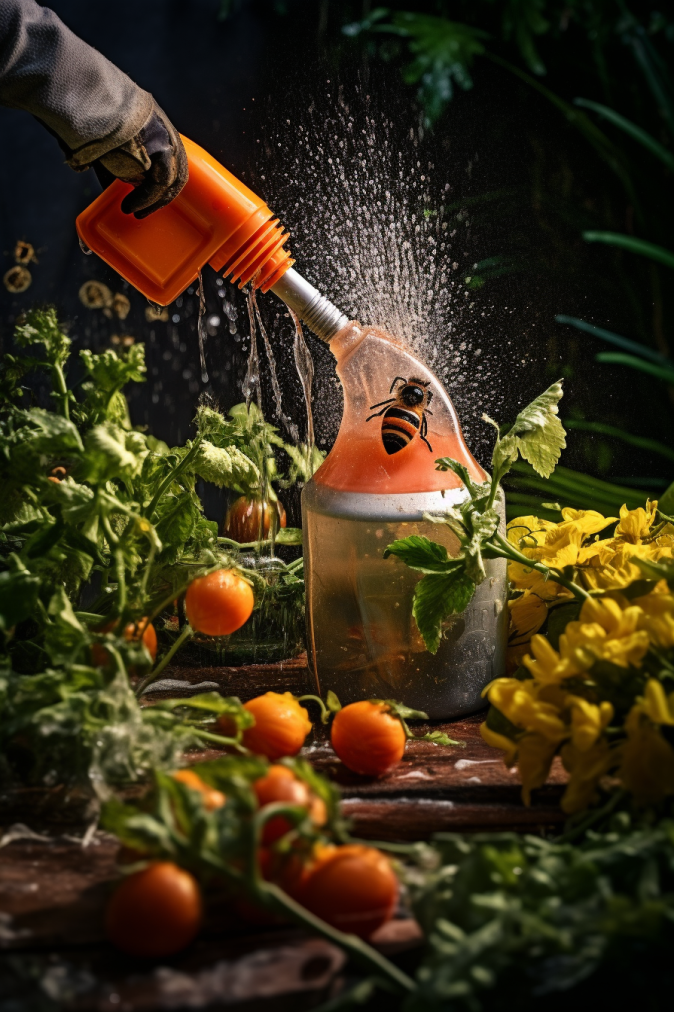
- Read also: Natural Pesticides for Indoor Plants
- Read also: Natural Pesticides for Your Roses
Conclusion: A Greener Future
Embracing natural pesticides signifies more than a passing trend; it embodies a deliberate commitment to safeguard our planet.
Utilizing these DIY solutions fosters a greener environment while ensuring a pest-free haven for both homes and gardens.
FAQs
Yes, while they might take a bit longer to show results, natural pesticides are effective and safer for the environment.
Absolutely! Experimenting with combinations can often yield more potent solutions, but ensure compatibility and test on a small area first.
When used correctly and in moderation, natural pesticides won’t harm your plants. However, it’s always wise to test a small area before widespread application.

